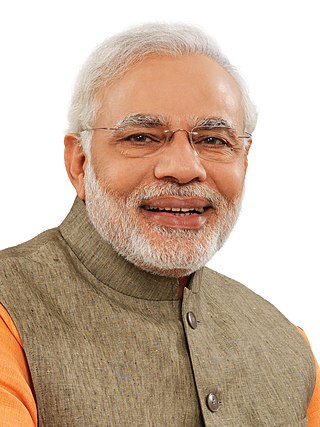
Shankar Dayal Sharma was an Indian lawyer and politician from the state of Madhya Pradesh who served as the ninth president of India, from 1992 to 1997.

A permanent account number (PAN) is a ten-character alphanumeric identifier Foundational ID, issued in the form of a laminated "PAN card", by the Indian Income Tax Department, to any person who applies for it or to whom the department allots the number without an application. It can also be obtained in the form of a PDF file known as e-PAN from the website of the Indian Income Tax Department.

Elections BC is a non-partisan office of the British Columbia legislature responsible for conducting provincial and local elections, by-elections, petitions, referendums, plebiscites in the Canadian province of British Columbia. Its federal equivalent is Elections Canada.
Ranjeet Ranjan also known as Ranjeeta is an Indian politician serving as Member of Parliament, Rajya Sabha from Chhattisgarh. She was member of the 14th Lok Sabha as a Member of Parliament from Supaul, Bihar from the Indian National Congress party.

General elections were held in Belize on 7 February 2008. Beginning with this election, Belizeans elected 31 members to the House of Representatives of Belize instead of 29. In what was considered an upset, the opposition United Democratic Party (UDP) won the election with 25 out of 31 seats; the ruling People's United Party won six.
Electronic voting by country varies and may include voting machines in polling places, centralized tallying of paper ballots, and internet voting. Many countries use centralized tallying. Some also use electronic voting machines in polling places. Very few use internet voting. Several countries have tried electronic approaches and stopped because of difficulties or concerns about security and reliability.

The Indian Voter ID Card is an identity document issued by the Election Commission of India to adults domiciles of India who have reached the age of 18. It primarily serves as an identity proof for Indian citizens while casting their ballot in the country's municipal, state, and national elections. It also serves as general identity, address, and age proof for other purposes such as buying a mobile phone SIM card or applying for a passport. It also serves as a Travel Document to travel to Nepal and Bhutan by Land or Air It is also known as Electors Photo Identity Card (EPIC). It was first introduced in 1993 during the tenure of the Chief Election Commissioner T. N. Seshan.

General elections were held in India in nine phases from 7 April to 12 May 2014 to elect the members of the 16th Lok Sabha. With 834 million registered voters, they were the largest-ever elections in the world until being surpassed by the 2019 election. Around 23.1 million or 2.71% of the total eligible voters were aged 18–19 years. A total of 8,251 candidates contested the 543 elected Lok Sabha seats. The average election turnout over all nine phases was around 66.40%, the highest ever in the history of Indian general elections until 2019 election.

Electoral ink, indelibleink, electoral stain or phosphoric ink is a semi-permanent ink or dye that is applied to the forefinger (usually) of voters during elections in order to prevent electoral fraud such as double voting. It is an effective method for countries where identification documents for citizens are not always standardised or institutionalised. One of the more common election ink compositions is based on silver nitrate, which can produce a stain lasting several weeks. It was first used during the 1962 general election in India. The ink was developed by the Council of Scientific and Industrial Research-National Physical Laboratory (CSIR-NPL), a research institute of CSIR, Ministry of Science and Technology, Govt. of India and manufactured by Mysore Paints and Varnish Ltd. It is exported to more than 30 countries.
Richard A.Bennett is an American politician from the state of Maine. Bennett is the President and CEO of ValueEdge Advisors, a firm he founded in summer 2014 to help institutional investors engage with their portfolio companies. From 2006 to 2014 he ws CEO of The Corporate Library and then chairman or vice chairman of GMI Ratings, its successor company, an independent research firm focusing on corporate governance, director/executive compensation, and forensic accounting. For six years, Bennett was included in the NACD Directorship's "100 most influential people" in the boardroom and corporate governance community.

Chockalingam Raj Kumar is an Indian academic administrator who is the founding vice-chancellor of O.P. Jindal Global University in Sonipat, Haryana, India, and the dean of the Jindal Global Law School.
Ustad Ateeq Hussain Khan Bandanawazi Al-Hashmi Qawwal is an Indian Qawwal.
"Right To Recall (RTR)" are existing laws in some states of India that allow citizens to remove or replace public servants holding posts of Sarpanch, Mukhiya, Corporator and Mayor in the government.

The Delhi Legislative Assembly election was held on 4 December 2013, with the result announced on 8 December resulting in formation of the Fifth Legislative Assembly of Delhi.
The Delhi Legislative Assembly election was held on 7 February 2015 to elect 70 members of the Sixth Legislative Assembly of Delhi. The results were announced on 10 February 2015. The Aam Aadmi Party secured an absolute majority in the assembly, winning 67 of the 70 seats.

Atishi Marlena Singh, also known as Atishi Singh or Atishi Marlena or mononymously Atishi, is an Indian politician who is currently serving as the 8th Chief Minister of Delhi since 21 September 2024, after the resignation of Arvind Kejriwal. She belongs to the Aam Aadmi Party and is a member of its Political Affairs Committee, the governing body of the party. Prior to her appointment as the chief minister, she also served as the Minister of Education, P.W.D, Culture and Tourism in the Delhi Government. Previously, she served as advisor to the former Deputy Chief Minister of Delhi, Manish Sisodia, primarily on education, from July 2015 to 17 April 2018. Atishi is one of only two women currently serving as a chief minister in India, along with Mamata Banerjee of West Bengal.

The election to the 17th Uttar Pradesh Legislative Assembly was held from 11 February to 8 March 2017 in 7 phases. This election saw a voter turnout of 61.11% compared to 59.40% in the previous election. The Bharatiya Janata Party (BJP) won the election by an overwhelming three-quarters majority of 325 seats despite not projecting a chief ministerial candidate before the election. As part of its election strategy, BJP contested under a collective leadership and capitalised mostly on the political clout and 'brand' of its leader Narendra Modi.

None of the Above, abbreviated as NOTA, has been provided as an option to the voters of India in most elections since 2013. By expressing a preference for none of the above, a citizen can choose not to vote for any candidates who are contesting the elections.
Delhi State Election Commission is an autonomous and statutory body constituted in Indian state of Delhi for ensuring that elections are conducted in free, fair and unbiased way. Constitution of India with provisions as per Article 243K and 243 ZA and Article 324 ensures creation and safeguarding of the powers of State Election Commissions. Delhi State Election Commission is responsible for conducting elections for Urban Local Bodies like Municipalities, Municipal Corporations, Panchayats and any other specified by Election Commission of India. Delhi State Election Commissioner is appointed by Lieutant Governor of Delhi.

Rajiv Kumar is a former Indian Administrative Service officer. On 15 May 2022, he assumed the charge as the 25th Chief Election Commissioner of India, succeeding Sushil Chandra.












